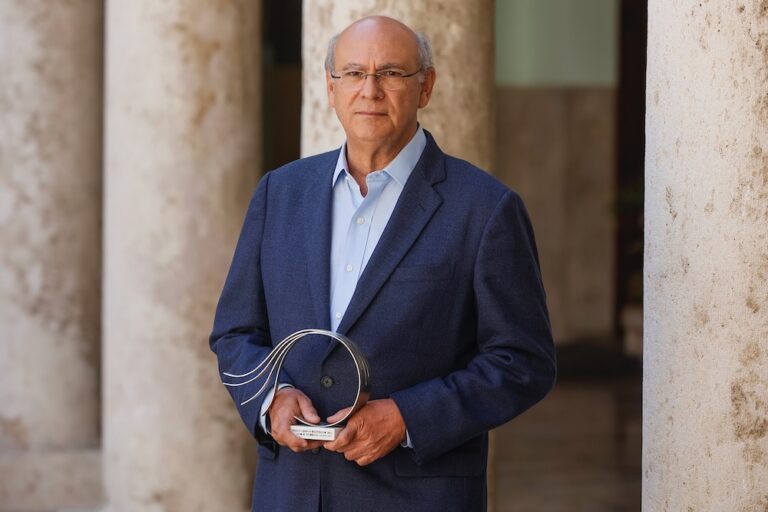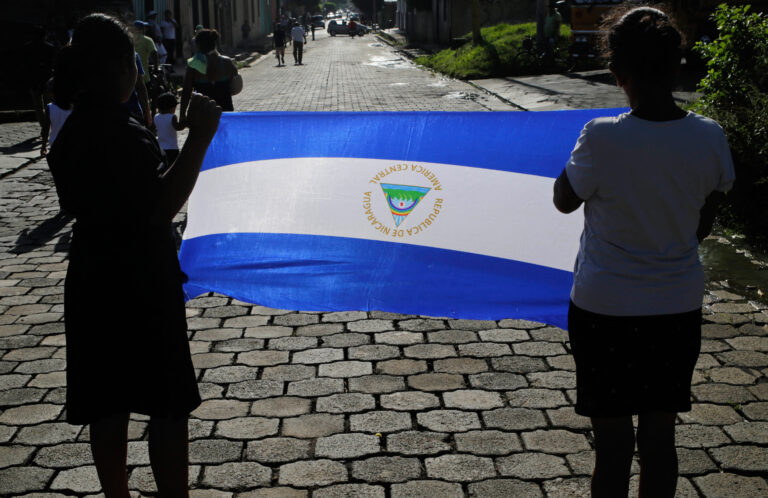(ARTICLE 19/IFEX) – The following is a 9 January 2008 ARTICLE 19 press release: Nicaragua: Under Attack – Freedom of Expression of Women’s Rights Activists The General Prosecutor’s Office has launched a criminal investigation into nine prominent leaders of the women’s rights movement in Nicaragua, following a formal complaint filed by the so-called National Association […]
(ARTICLE 19/IFEX) – The following is a 9 January 2008 ARTICLE 19 press release:
Nicaragua: Under Attack – Freedom of Expression of Women’s Rights Activists
The General Prosecutor’s Office has launched a criminal investigation into nine prominent leaders of the women’s rights movement in Nicaragua, following a formal complaint filed by the so-called National Association for Human Rights (Asociación Nacional Pro Derechos Humanos, ANPDH), a civil organisation with a confessional (religious) profile. The defendants have advocated on women’s rights issues for many years, such as in the case of Zoilaamérica Narváez, who testified about the sexual abuse committed by her former stepfather and current president of Nicaragua, Mr. Daniel Ortega.
Freedom of expression is a fundamental right that paves the way for the full realisation of all other human rights and the enabling of democracy. The Vienna Declaration and Programme of Action (1993) recognises that democracy, development and respect for human rights and fundamental freedoms are interdependent and mutually reinforcing. In this context, the full exercise of freedom of expression has proven to be essential to the progressive realisation of all human rights, including women’s rights.
The Declaration on the Right and Responsibility of Individuals, Groups and Organs of Society to Promote and Protect Universally Recognised Human Rights and Fundamental Freedoms, adopted by the General Assembly in 1999, recognises the right of every person to “know, seek, obtain, receive and hold information about all human rights and fundamental freedoms”, and also “to study, discuss, form and hold opinions on the observance, both in law and in practice, of all human rights and fundamental freedoms and, through these and other appropriate means, to draw public attention to those matters”.
ARTICLE 19 expresses its concern for the harassment of and threats against the nine human rights defenders due to their work against gender-based violence and in favour of the full realisation of reproductive rights in Nicaragua.
We respectfully point out that the Nicaraguan State is internationally obligated not only to refrain from interfering in the free flow of ideas and opinions, but to promote and guarantee their flow. It is clear that the silencing of the voices of the nine women (Ana Maria Pizarro, Juana Jiménez, Lorna Norori, Luisa Molina, Martha María Blandón, Martha Murguía, Mayra Sirias, Violeta Delgado and Yamileth Mejía) through censorship is fuelling the criminal accusations against them.
In response to what clearly constitutes an attack on freedom of expression, ARTICLE 19 calls upon the Nicaraguan State to adopt all the necessary measures to guarantee the legal and physical security of each and every human rights defender that has been subject to illegitimate harassment. As stated by the Interamerican Human Rights Court: “an illegal act which violates human rights and which is initially not directly imputable to a State (for example, because it is the act of a private person or because the person responsible has not been identified) can lead to international responsibility of the State, not because of the act itself, but because of the lack of due diligence to prevent the violation or to respond to it as required by the Convention”.
“The use of legal means to harass human rights defenders is unacceptable”, said Darío Ramírez, Director of ARTICLE 19’s Office for Mexico and Central America. “President Ortega must translate into actions the unrestricted commitment to freedom of expression guaranteed in international law that he pledged to defend when he became President”.
ARTICLE 19 respectfully calls upon President Daniel Ortega to adopt, in accordance with international human rights law, all the necessary measures to guarantee, respect and promote the free flow of ideas and opinions.
ARTICLE 19 calls upon the international community to express its solidarity with the nine human rights defenders illegitimately accused, as well as with the victims and victims’ families they defend.


